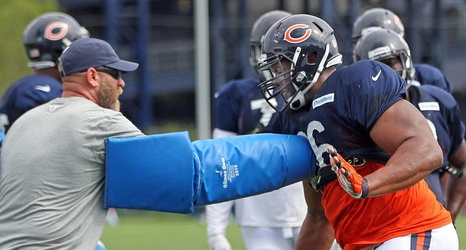FOXBORO -- When researchers at Boston University announced Tuesday that they may have found a way to detect chronic traumatic encephalopathy, a brain trauma commonly referred to as CTE, in living patients, it represented much-needed hope in a critical health issue facing professional football players.
At the moment, CTE can only be diagnosed by performing tests on the deceased.
The topic has become a major one for the better part of the last decade, as BU’s findings have pointed to an alarming rate of CTE in former players due to repeated concussions. Last week, researchers discovered an advanced case of CTE in former Patriots tight end Aaron Hernandez, who committed suicide in prison on April 19.
